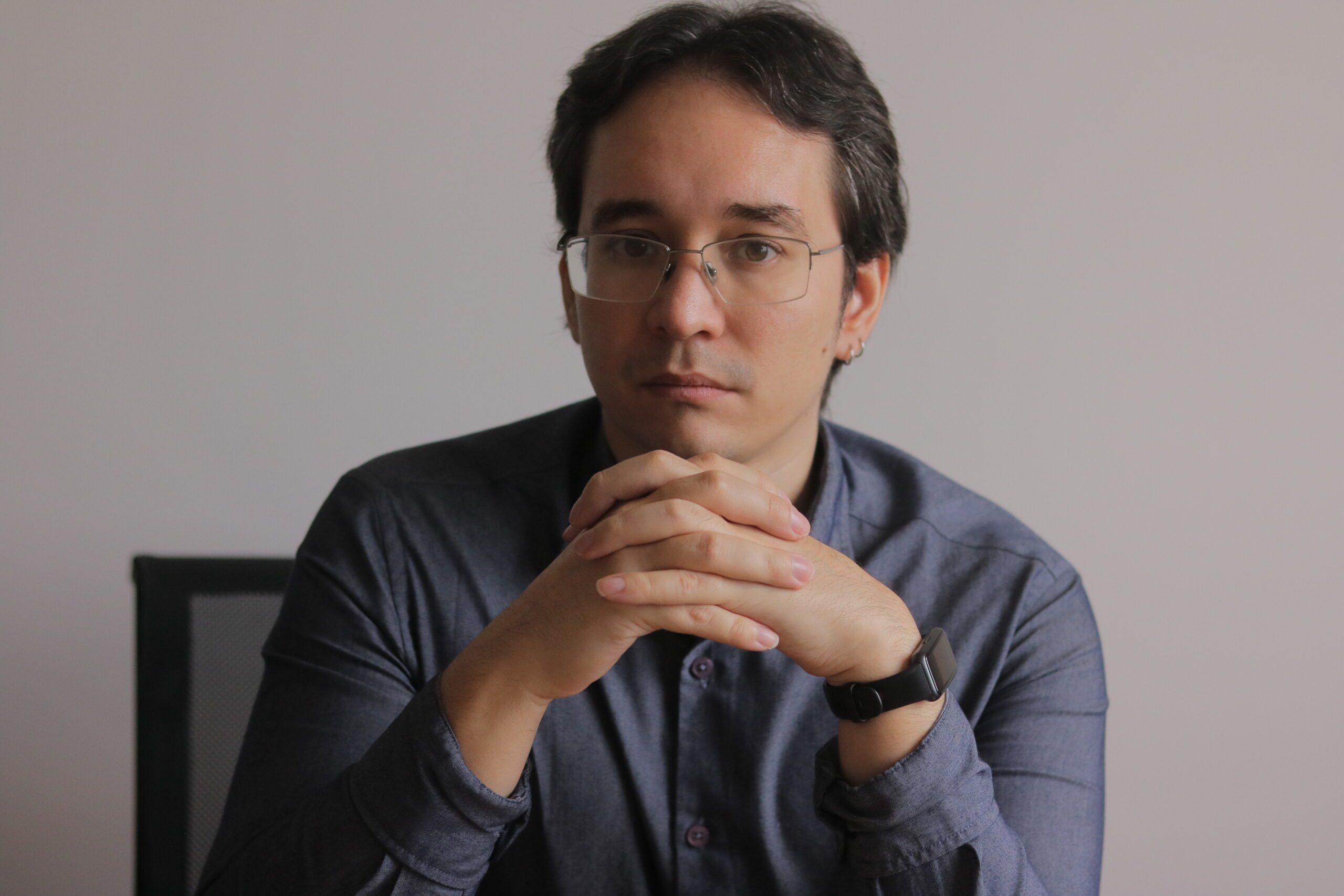Combining innovative technologies with public health. This is the objective of the research developed by researcher Gabriel Alves Vasiljevic Mendes, from Rio Grande do Norte, who won third place in the “Masters and Doctors” category at the 30th edition of the Young Scientist Award. The ceremony took place on Wednesday afternoon (12), at Sesi Lab, in Brasília/DF, and was attended by the Minister of Science and Technology, Luciana Santos, and the president of the National Council for Scientific and Technological Development (CNPq), Ricardo Magnus Galvão, among other authorities.
Gabriel Vasiljevic is a professor and researcher at the Santos Dumont Institute (ISD), a social organization located in Macaíba, where he works in the Postgraduate Program in Neuroengineering. His work focuses on the development of brain-computer interfaces (BCI), a technology that allows interaction between the human brain and external electronic devices through brain signals.
The research that led to the award began in 2014, when Gabriel became interested in the ICC area and began investigating its possibilities. He identified that, despite the great potential of this technology, its use is still limited by technical barriers and the need for expensive equipment and lengthy training. To overcome these challenges, Gabriel developed open-source games controlled by ICC and conducted experiments to understand how visual, audio and social interaction elements can improve the performance of users assisted by the tool.
The project, which became a doctoral thesis, was supervised by Professor Leonardo Cunha de Miranda and developed at the Department of Computer Science and Applied Mathematics of the Federal University of Rio Grande do Norte (DIMAp/UFRN), in the PAIRG (Physical Artifacts of Interaction Research Group) research group. The work is entitled “Model, Taxonomy and Methodology for Research Employing Electroencephalography-based Brain-Computer Interface Games” [Model, taxonomy and methodology for research applying games based on electroencephalography with Brain-Computer Interface, in free translation].
“Our research not only showed the current limitations of using BCI with low-cost devices, but also resulted in a model, a taxonomy and a methodology that help in the development and adaptation of games for brain control,” explains Gabriel. The results are already being used by researchers from more than 140 institutions around the world, including universities, research centers, companies and public policy-making agencies.
Brain-computer interfaces allow people with severe physical disabilities, such as quadriplegia, Parkinson's disease or amyotrophic lateral sclerosis, to control electronic devices, communicate and participate in daily activities without relying on body movements. “Making these devices more accessible and intuitive is essential to expanding their use in the public health system, especially in the SUS,” the researcher emphasizes.
Winning the Young Scientist Award represents an important recognition of the work developed by Gabriel Vasiljevic and the ISD. “Winning this award is a validation of the path we are following and also an opportunity to increase the visibility of neuroengineering and promote new research in the area”, he highlights.
Young Scientist Award
The Young Scientist Award is an initiative of the National Council for Scientific and Technological Development (CNPq), in partnership with the Roberto Marinho Foundation, with media support from Editora Globo and Canal Futura, and sponsorship from Shell. For over 40 years, the Young Scientist Award has revealed talent, promoted research in the country, and invested in students and young researchers who seek to innovate in solving the challenges facing Brazilian society.
The first edition took place in 1981, with the theme “Telecommunications”. Since then, each edition of the Young Scientist Award has nominated an important theme for scientific and technological development, with national priority, that meets the public policies of the federal government and is relevant to Brazilian society. The theme of the 30th edition is “Connectivity and Digital Inclusion”.
About ISD
The Santos Dumont Institute (ISD) is a Social Organization linked to the Ministry of Education (MEC) and includes the Edmond and Lily Safra International Neuroscience Institute and the Anita Garibaldi Center for Health Education and Research, both in Macaíba. ISD's mission is to promote education for life, forming citizens through integrated teaching, research and extension actions, in addition to contributing to a fairer and more humane transformation of Brazilian social reality.













